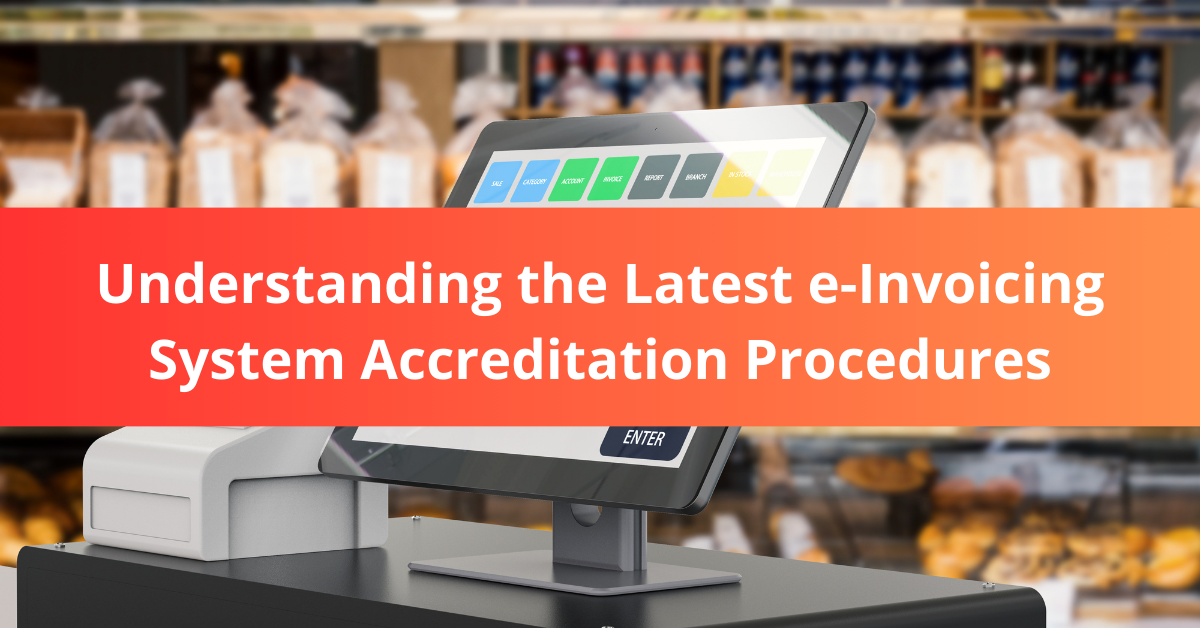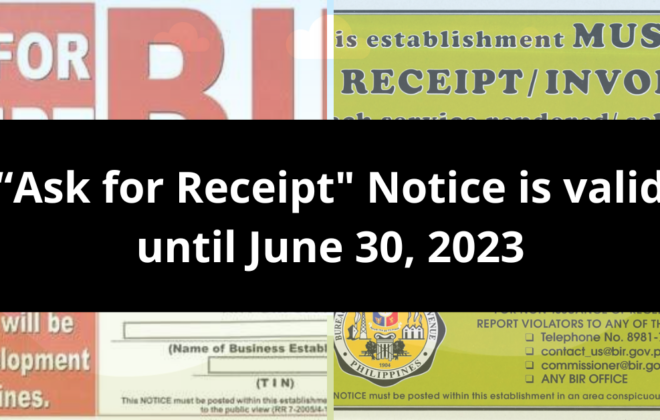Understanding the Latest e-Invoicing System Accreditation Procedures
In the fast-changing world of business and technology, staying compliant with tax regulations is important. Recently, the Bureau of Internal Revenue (BIR) in the Philippines issued Memorandum Order (RMO) No. 24-2023, a game-changer in the accreditation process for sales machines and software used to generate invoices and receipts.
This innovation, known as the Enhanced Electronic Accreditation and Registration (eAccReg) System, aims to streamline processes and promote compliance with the Ease of Doing Business Act.
Why is Accreditation Important?
Accreditation, in this context, is about ensuring that sales machines and software used for recording sales transactions comply with BIR standards.
The scope of this accreditation covers a wide range of devices, including cash register machines (CRM), point-of-sale (POS) systems, e-invoicing and e-receipting systems, and more.
The goal is to create a standardized process for accreditation while making it easier for businesses to adhere to tax regulations.
Who Needs Accreditation?
If you distribute, sell, or use sales machines or software for your business operations, this accreditation applies to you.
Whether you’re a supplier, vendor, developer, provider, or taxpayer-user, enrolling in the Enhanced eAccReg System is a necessary step to ensure compliance with BIR regulations.
The following are the machines or software that should undergo BIR accreditation:
- Cash register machine (CRM)
- Point-of-sale (POS) system–bundled POS (both hardware and software) and POS software
- e-invoicing or e-receipting system/software used under a subscription-based agreement
- All other similar sales machines/software that will generate printed invoices/ receipts such as taximeters; handheld or mobile devices linked to a server; unmanned bill, coin, or token-operated machines issuing invoices upon sale; and other sales machines/software issuing invoices/receipts, except computerized accounting system
The Accreditation Process
The accreditation process involves several key steps:
Enrollment:
Begin by submitting a Sworn Declaration to the Large Taxpayers Office or Revenue District Office where you are registered. Upon approval, you’ll receive an email confirming your enrollment in the Enhanced eAccReg System.
Application for Accreditation:
After enrollment, complete the Application for Accreditation in the Enhanced eAccReg System online. Simultaneously, submit all required documents manually to the RDO where your head office is registered.
Compliance with Specifications:
The sales machines or software you intend to accredit must comply with the specifications and features outlined in the order. You’ll need to provide explicit attestation and declaration through a duly signed and notarized Sworn Statement.
System Demonstration:
A Technical Working Group (TWG) will evaluate your sales machines or software for compliance. This involves a system demonstration by you, the taxpayer-applicant. The TWG will coordinate the demonstration with you within three working days.
Certificate of Accreditation:
If your application is approved, the concerned RDO will issue a Certificate of Accreditation. This certificate includes an Accreditation Number specific to your machine brand/model/system/software version. It is typically issued within 20 working days after compliance with all requirements.
Important Notes
- The application for accreditation is free; no fees will be imposed by any Region, LT Office, or RDO.
- If your sales machine or software undergoes significant enhancements, upgrades, or modifications, you’ll need to file a new application for accreditation.
- Minor enhancements do not require reaccreditation but should be reported to the LT Office/RDO.
- The official list of accredited sales machines and software will be posted on the BIR website to inform taxpayers about compliant options.
The BIR’s Enhanced Electronic Accreditation and Registration (eAccReg) System is a significant step forward in simplifying tax compliance for businesses in the Philippines.
By standardizing the accreditation process and providing clear guidelines, the BIR aims to make it easier for businesses to adhere to tax regulations. If you’re involved in using or distributing sales machines or software, it’s essential to familiarize yourself with these new requirements and take the necessary steps to ensure compliance.
Remember, compliance with tax regulations not only helps you avoid legal issues but also contributes to the overall growth and sustainability of your business.
—————–
Do you need help with your tax compliance or any BIR-related concerns, our team at DJKA Business Services will be happy to assist you. Just email us at info@djkaaccounting.com for more information.
Recent Posts
- New Features and Functionalities of the Online Registration and Update System (ORUS)
- A Comprehensive Guide to Taxation for Freelancers in the Philippines
- New Tax Laws in 2024: What Changes Filipino Taxpayers Should Prepare For
- How to Avoid Common Tax Mistakes in 2024
- Tax Deductions and Benefits Often Overlooked by Filipino Taxpayers





